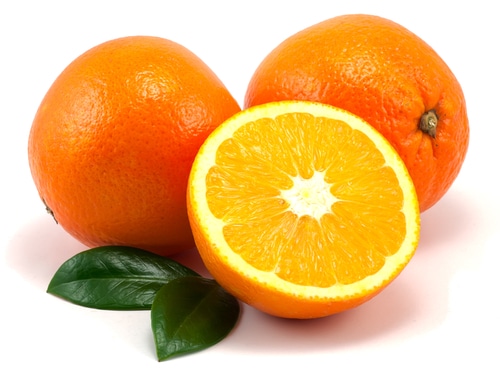
Why is Vitamin C So Important?
Most mammals make their own vitamin C and don’t have to get it through diet. Two notable exceptions are humans and guinea pigs. Why is vitamin C so important? A deficiency of vitamin C leads to scurvy, a condition characterized by poor wound healing, bruising, swollen gums, and fatigue. While vitamin C deficiency that’s extreme enough to cause scurvy isn’t common, some experts believe that getting more vitamin C than the current RDA would reduce the risk of chronic medical problems including cancer, stroke and heart disease. Most people aren’t getting 200 milligrams a day of vitamin C, and some are barely getting the current RDA of 75 milligrams for women and 90 milligrams for men.
When researchers pooled a number of human studies, they found that people who got greater quantities of vitamin C through diet or supplementation had a lower risk of mortality from heart disease. In addition, men with the lowest levels of vitamin C in their blood had a 62% greater risk of dying of cancer relative to men with the highest levels. This is certainly compelling, but people who eat a healthy diet that emphasizes fruits and vegetables also have higher vitamin C levels. Therefore, other components in a healthy diet like antioxidants or other vitamins and minerals may be responsible for the reduction in heart disease and cancer.
Still, vitamin C is vital for a healthy immune system, and it helps to reduce inflammation and lower blood pressure. All of these things are important in preventing health problems. As noted in this study, even marginally low levels of vitamin C may cause fatigue and lack of energy. Plus, certain groups of people like smokers need more vitamin C than non-smokers do.
Should You Take a Vitamin C Supplement?
Supplements don’t always have the same benefits as getting a vitamin naturally through diet. Instead of reaching for a bottle of pills, add more natural vitamin C to your diet by eating more fruits and vegetables. Did you know a cup of strawberries has almost 100 milligrams of vitamin C? Combine a cup of strawberries with an orange, and you’ll get almost 200 milligrams of this antioxidant vitamin. Some vegetables are an even better source of vitamin C. A cup of sweet red peppers has 200 milligrams of vitamin C per cup, while a cup of broccoli has more than 100 milligrams. You can boost your vitamin C intake by simply eating more produce.
The Bottom Line?
There are no drawbacks to adding more vitamin C to your diet when you get it naturally through fruits and vegetables, and you’ll benefit from the other healthy components in vegetables and fruits. Add a cup of broccoli to your daily diet, and enjoy more strawberries and red peppers. These foods are naturally good sources of vitamin C and may give you extra protection against disease.
References:
Vaughn’s Summaries “Vitamin C Foods Summary”
Medical News Today. “If RDA for Vitamin C is Increased, Incidence of Heart Disease, Stroke, Cancer May Be Reduced”
Related Articles By Cathe:
How to Get More Vitamin C in Your Diet & Why You Should
Does Vitamin C Play a Role in Fat Loss?
Do You Have a Vitamin C Deficiency?
Does Higher Doses Of Vitamin C Really Lower Your Risk of Catching a Cold?
Does Vitamin C Mimic Some of the Effects of Exercise?
Hidden Health: 5 Surprising Sources of Vitamin C

